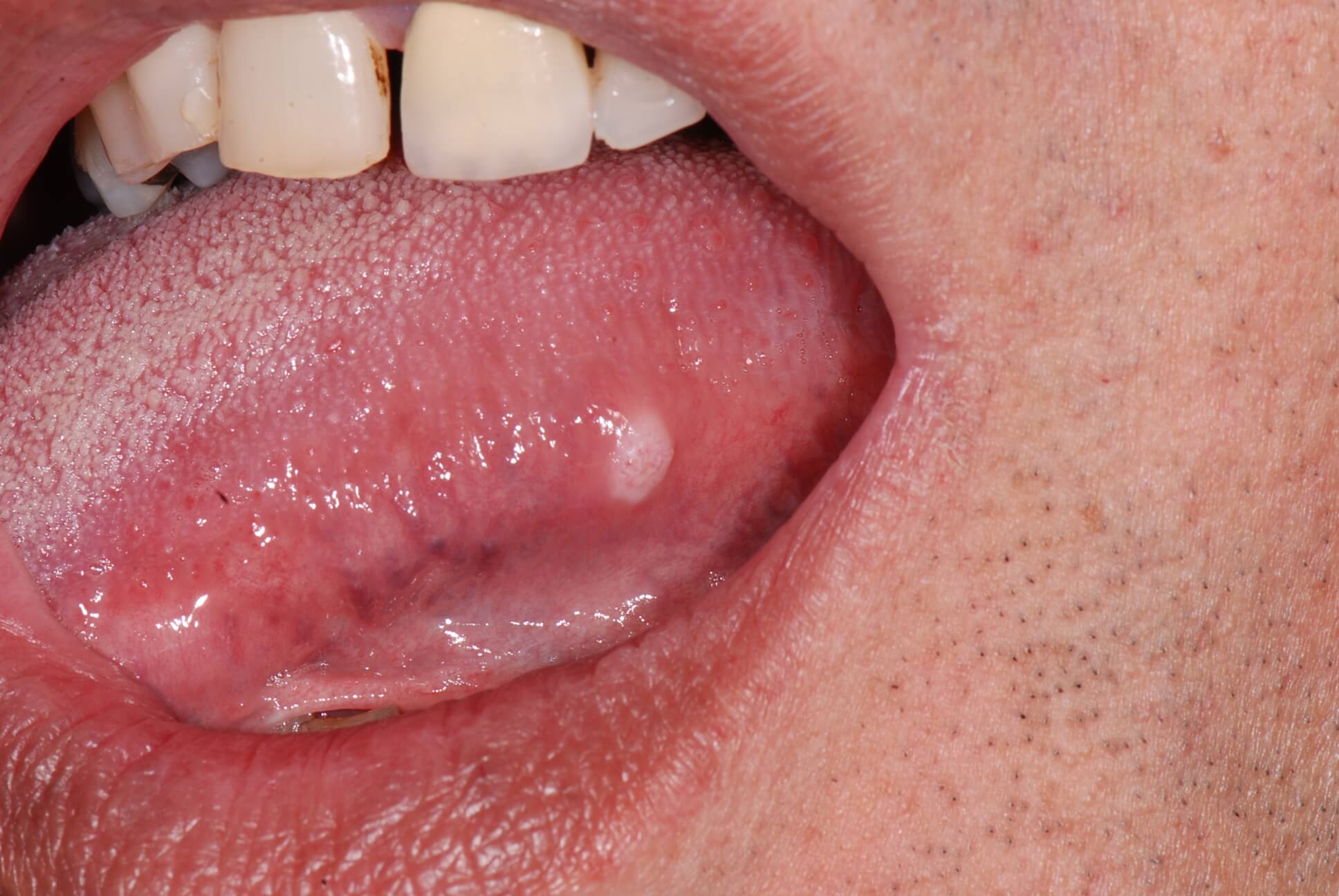Tongue Cancer: Symptoms, Cause & Treatment
What are the symptoms of tongue cancer?
Tongue cancer can present with various symptoms, which may include:
- Persistent Sore Throat: A sore throat that does not go away or that persists despite treatment.
- Painful Tongue: Pain or discomfort in the tongue that does not resolve.
- Difficulty Swallowing (Dysphagia): Difficulty swallowing, which may be accompanied by pain or discomfort.
- Painful Chewing: Pain or discomfort when chewing food.
- Changes in Speech: Changes in speech, such as slurred speech or difficulty pronouncing words.
- Swelling: Swelling of the tongue or in the mouth that does not resolve.
- Numbness: Numbness or tingling in the tongue or mouth.
- Red or White Patches: Red or white patches on the tongue or in the mouth that do not go away.
- Unexplained Bleeding: Unexplained bleeding in the mouth or throat.
- Ear Pain: Pain in the ear, which may be referred pain from the tongue or throat.
- Weight Loss: Unexplained weight loss.
- Bad Breath (Halitosis): Persistent bad breath that is not resolved with oral hygiene measures.
It’s important to note that these symptoms can also be caused by other conditions, so it’s important to see a healthcare provider for a proper evaluation if you experience any of these symptoms. Early detection and treatment of tongue cancer can improve outcomes.
What are the causes of tongue cancer?
Tongue cancer, like other types of cancer, is caused by genetic mutations that lead to uncontrolled growth and division of cells. The exact cause of these genetic mutations is often not known, but several factors may increase the risk of developing tongue cancer. These risk factors include:
- Tobacco Use: Smoking cigarettes, cigars, or pipes, as well as using smokeless tobacco products, increases the risk of developing tongue cancer.
- Heavy Alcohol Use: Drinking alcohol in excess can increase the risk of developing tongue cancer, especially when combined with tobacco use.
- Human Papillomavirus (HPV) Infection: Infection with certain strains of HPV, especially HPV-16, has been associated with an increased risk of developing tongue cancer.
- Poor Oral Hygiene: Poor oral hygiene, including not brushing or flossing regularly, can increase the risk of developing tongue cancer.
- Chronic Irritation: Chronic irritation of the tongue, such as from rough teeth or dental appliances, can increase the risk of developing tongue cancer.
- Poor Nutrition: A diet low in fruits and vegetables may increase the risk of developing tongue cancer.
- Sun Exposure: Prolonged exposure to sunlight can increase the risk of developing cancer on the lips, which can sometimes spread to the tongue.
- Age and Gender: Tongue cancer is more common in older adults and is more common in men than in women.
- Family History: Having a family history of tongue cancer or other types of head and neck cancer can increase the risk of developing tongue cancer.
- Weakened Immune System: A weakened immune system, such as from conditions like HIV/AIDS or from certain medications, can increase the risk of developing tongue cancer.
It’s important to note that having one or more risk factors does not mean that a person will develop tongue cancer, and some people with tongue cancer may not have any known risk factors. Regular dental check-ups and screenings can help detect tongue cancer early when it is most treatable.
What is the treatment for tongue cancer?
The treatment for tongue cancer depends on the stage of the cancer, its location, and other factors such as the patient’s overall health and preferences. Treatment options may include:
- Surgery: Surgery is often used to remove the tumor and a margin of healthy tissue around it. The extent of surgery depends on the size and location of the tumor. In some cases, part of the tongue may need to be removed (partial glossectomy), or in more advanced cases, the entire tongue (total glossectomy) may need to be removed.
- Radiation Therapy: Radiation therapy uses high-energy beams to kill cancer cells. It may be used alone or in combination with surgery, depending on the stage of the cancer. External beam radiation therapy is commonly used for tongue cancer.
- Chemotherapy: Chemotherapy uses drugs to kill cancer cells. It may be used alone or in combination with surgery and/or radiation therapy, especially in cases where the cancer has spread to other parts of the body.
- Targeted Therapy: Targeted therapy drugs target specific abnormalities in cancer cells that allow them to grow and survive. They may be used in combination with other treatments for advanced tongue cancer.
- Immunotherapy: Immunotherapy uses the body’s immune system to help fight cancer. It may be used in certain cases of advanced tongue cancer.
- Reconstructive Surgery: After surgery to remove part or all of the tongue, reconstructive surgery may be done to rebuild the tongue and improve speech and swallowing.
- Speech and Swallowing Therapy: After treatment, speech and swallowing therapy may be helpful to improve speech and swallowing function.
The specific treatment plan for tongue cancer is determined by a multidisciplinary team of healthcare providers, including surgeons, oncologists, radiation oncologists, and other specialists. The goal of treatment is to remove or destroy the cancer while preserving as much of the tongue’s function as possible. Early detection and treatment of tongue cancer can improve outcomes and quality of life.




